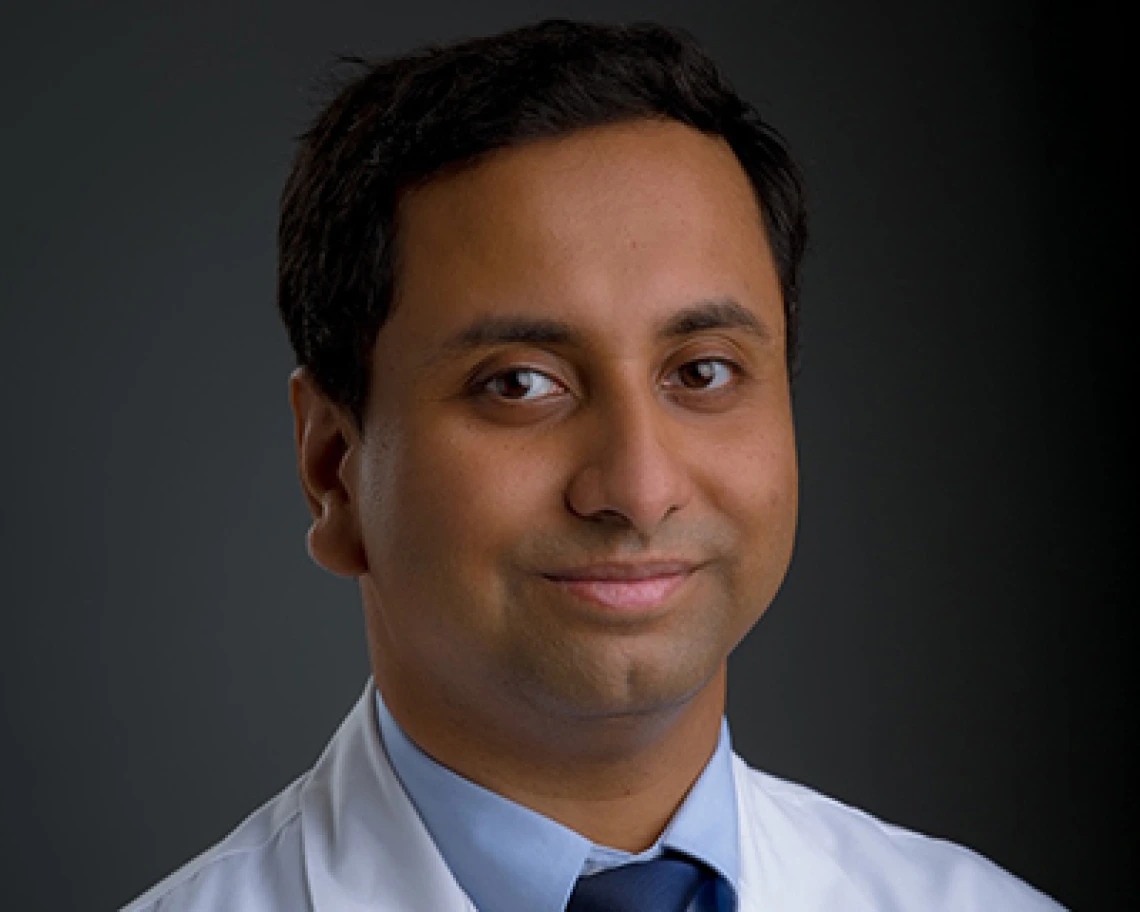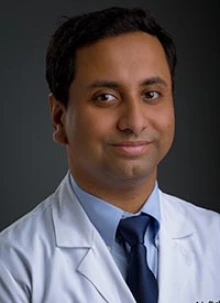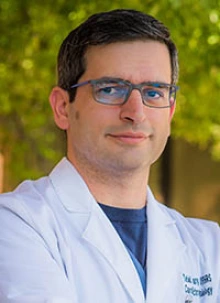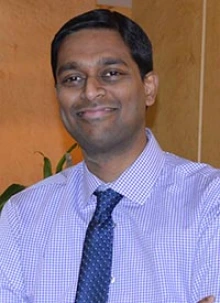Three New Cardiologists Broaden UArizona Health Sciences, Banner – University Medicine Breadth of Services in Tucson
Drs. Arka Chatterjee, Talal Moukabary and Madhan Sundaram bring significant expertise in interventional cardiology and electrophysiology to the Sarver Heart Center and Banner – University Medicine Tucson.

TUCSON, Ariz. – Three cardiologists recently joined the University of Arizona Sarver Heart Center. Arka Chatterjee, MD, Talal Moukabary, MD, and Madhan Sundaram, MBBS, joined the faculty of the UArizona College of Medicine – Tucson and are now seeing patients at Banner – University Medical Center Tucson.

Arka Chatterjee, MD
“These three physicians not only bring experience in electrophysiology, coronary and peripheral interventions and minimally invasive valve replacement, but they will expand the research offerings of the Sarver Heart Center in important areas of cardiology. This will allow us to bring the latest advances in heart disease treatment to the people of Southern Arizona,” added Dr. Sweitzer.
Drs. Chatterjee and Moukabary are associate professors and Dr. Sundaram is an assistant professor of medicine.

Talal Moukabary, MD
Dr. Moukabary is a cardiac electrophysiologist (a cardiologist specializing in heart rhythm disorders or arrhythmias). He is an expert in computer modeling of cardiac arrythmia, imaging in the cardiac electrophysiology lab, cell-based arrythmia therapy and clinical cardiac electrophysiology. He is board certified in clinical cardiac electrophysiology and internal medicine. Dr. Moukabary’s research interests include use of stem cell and iPS (induced pluripotent stem) cell therapies for heart rhythm disorders.

Madhan Sundaram, MBBS
Dr. Sundaram is director of the Banner – UMC Tucson Cardiac Catheterization Lab and Endovascular Services. He is board certified in interventional cardiology, cardiovascular disease, echocardiography and internal medicine. His clinical interests include complex coronary interventions, chronic total occlusions, endovascular peripheral interventions, interventions for acute pulmonary embolism and structural heart disease interventions. His research interests include cardiac interventions in older adults and clinical trials in coronary artery disease, peripheral artery disease and pulmonary embolism.
To make an appointment to see any Banner physician, please call 520-694-8888.
A version of this article appeared originally on the UArizona Sarver Heart Center website.
# # #
NOTE: Photos available here – https://arizona.box.com/s/ys8om2uy2yczzf3j0jyekl819mnyj5j0.
About the Sarver Heart Center
The University of Arizona Sarver Heart Center's 160 members include faculty from cardiology, cardiothoracic surgery, pediatric cardiology, neurology, vascular surgery, radiology, endocrinology, emergency medicine, nursing, pharmacy and basic sciences. The UArizona Sarver Heart Center emphasizes a highly collaborative research environment, fostering innovative translational or "bench-to-bedside" research; dedicated to innovating lifesaving patient care. If you would like to give permission for Sarver Heart Center to contact you about heart research studies, please complete a Cardiology Research Registry Information Form. The academic mission of the Sarver Heart Center encompasses four fellowship programs in cardiovascular disease, interventional cardiology, advanced heart failure and transplant cardiology, and electrophysiology. For more information: heart.arizona.edu (Follow us: Facebook | Twitter | Instagram | YouTube).
About the University of Arizona College of Medicine – Tucson
The University of Arizona College of Medicine – Tucson is shaping the future of medicine through state-of-the-art medical education programs, groundbreaking research and advancements in patient care in Arizona and beyond. Founded in 1967, the college boasts more than 50 years of innovation, ranking among the top medical schools in the nation for research and primary care. Through the university's partnership with Banner Health, one of the largest nonprofit health care systems in the country, the college is leading the way in academic medicine. For more information, visit medicine.arizona.edu (Follow us: Facebook | Twitter | Instagram | LinkedIn).
About the University of Arizona Health Sciences
The University of Arizona Health Sciences is the statewide leader in biomedical research and health professions training. UArizona Health Sciences includes the Colleges of Medicine (Tucson and Phoenix), Nursing, Pharmacy, and the Mel and Enid Zuckerman College of Public Health, with main campus locations in Tucson and the Phoenix Biomedical Campus in downtown Phoenix. From these vantage points, Health Sciences reaches across the state of Arizona, the greater Southwest and around the world to provide next-generation education, research and outreach. A major economic engine, Health Sciences employs nearly 5,000 people, has approximately 4,000 students and 900 faculty members, and garners $200 million in research grants and contracts annually. For more information: uahs.arizona.edu (Follow us: Facebook | Twitter | YouTube | LinkedIn | Instagram).

